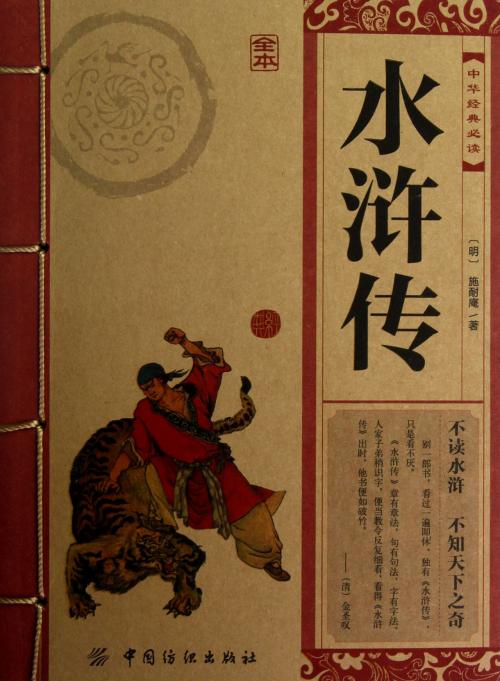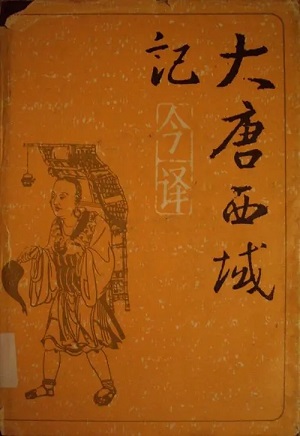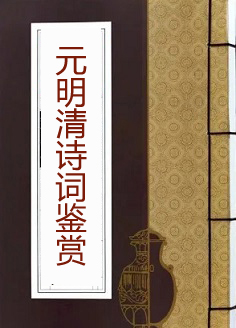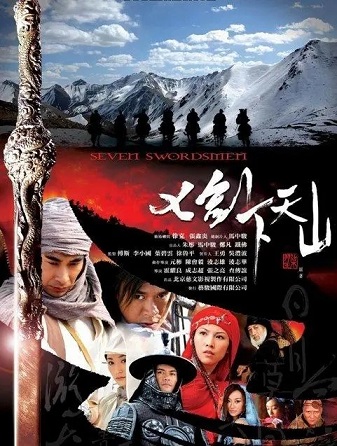So, on the morning of Waterloo, Napoleon was content.
He was right; the plan of battle conceived by him was, as we have seen, really admirable.
The battle once begun, its very various changes,--the resistance of Hougomont; the tenacity of La Haie-Sainte; the killing of Bauduin; the disabling of Foy; the unexpected wall against which Soye's brigade was shattered; Guilleminot's fatal heedlessness when he had neither petard nor powder sacks; the miring of the batteries; the fifteen unescorted pieces overwhelmed in a hollow way by Uxbridge; the small effect of the bombs falling in the English lines, and there embedding themselves in the rain-soaked soil, and only succeeding in producing volcanoes of mud, so that the canister was turned into a splash; the uselessness of Pire's demonstration on Braine-l'Alleud; all that cavalry, fifteen squadrons, almost exterminated; the right wing of the English badly alarmed, the left wing badly cut into; Ney's strange mistake in massing, instead of echelonning the four divisions of the first corps; men delivered over to grape-shot, arranged in ranks twenty-seven deep and with a frontage of two hundred; the frightful holes made in these masses by the cannon-balls; attacking columns disorganized; the side-battery suddenly unmasked on their flank; Bourgeois, Donzelot, and Durutte compromised; Quiot repulsed; Lieutenant Vieux, that Hercules graduated at the Polytechnic School, wounded at the moment when he was beating in with an axe the door of La Haie-Sainte under the downright fire of the English barricade which barred the angle of the road from Genappe to Brussels; Marcognet's division caught between the infantry and the cavalry, shot down at the very muzzle of the guns amid the grain by Best and Pack, put to the sword by Ponsonby; his battery of seven pieces spiked; the Prince of Saxe-Weimar holding and guarding, in spite of the Comte d'Erlon, both Frischemont and Smohain; the flag of the 105th taken, the flag of the 45th captured; that black Prussian hussar stopped by runners of the flying column of three hundred light cavalry on the scout between Wavre and Plancenoit; the alarming things that had been said by prisoners; Grouchy's delay; fifteen hundred men killed in the orchard of Hougomont in less than an hour; eighteen hundred men overthrown in a still shorter time about La Haie-Sainte,--all these stormy incidents passing like the clouds of battle before Napoleon, had hardly troubled his gaze and had not overshadowed that face of imperial certainty. Napoleon was accustomed to gaze steadily at war; he never added up the heart-rending details, cipher by cipher; ciphers mattered little to him, provided that they furnished the total, victory; he was not alarmed if the beginnings did go astray, since he thought himself the master and the possessor at the end; he knew how to wait, supposing himself to be out of the question, and he treated destiny as his equal: he seemed to say to fate, Thou wilt not dare.
Composed half of light and half of shadow, Napoleon thought himself protected in good and tolerated in evil. He had, or thought that he had, a connivance, one might almost say a complicity, of events in his favor, which was equivalent to the invulnerability of antiquity.
Nevertheless, when one has Beresina, Leipzig, and Fontainebleau behind one, it seems as though one might distrust Waterloo. A mysterious frown becomes perceptible in the depths of the heavens.
At the moment when Wellington retreated, Napoleon shuddered. He suddenly beheld the table-land of Mont-Saint-Jean cleared, and the van of the English army disappear. It was rallying, but hiding itself. The Emperor half rose in his stirrups. The lightning of victory flashed from his eyes.
Wellington, driven into a corner at the forest of Soignes and destroyed--that was the definitive conquest of England by France; it was Crecy, Poitiers, Malplaquet, and Ramillies avenged. The man of Marengo was wiping out Agincourt.
So the Emperor, meditating on this terrible turn of fortune, swept his glass for the last time over all the points of the field of battle. His guard, standing behind him with grounded arms, watched him from below with a sort of religion. He pondered; he examined the slopes, noted the declivities, scrutinized the clumps of trees, the square of rye, the path; he seemed to be counting each bush. He gazed with some intentness at the English barricades of the two highways,--two large abatis of trees, that on the road to Genappe above La Haie-Sainte, armed with two cannon, the only ones out of all the English artillery which commanded the extremity of the field of battle, and that on the road to Nivelles where gleamed the Dutch bayonets of Chasse's brigade. Near this barricade he observed the old chapel of Saint Nicholas, painted white, which stands at the angle of the cross-road near Braine-l'Alleud; he bent down and spoke in a low voice to the guide Lacoste. The guide made a negative sign with his head, which was probably perfidious.
The Emperor straightened himself up and fell to thinking.
Wellington had drawn back.
All that remained to do was to complete this retreat by crushing him.
Napoleon turning round abruptly, despatched an express at full speed to Paris to announce that the battle was won.
Napoleon was one of those geniuses from whom thunder darts.
He had just found his clap of thunder.
He gave orders to Milhaud's cuirassiers to carry the table-land of Mont-Saint-Jean.
这足见拿破仑在滑铁卢的那个早晨是高兴的。
他有理由高兴,他擘画出来的那个作战计划,我们已经肯定,真令人叹服。
交锋以后,战争的非常复杂惊险的变化,乌古蒙的阻力,圣拉埃的顽抗,博丹的阵亡,富瓦战斗能力的丧失,使索亚旅部受到创伤的那道意外的墙,无弹无药的吉埃米诺的那种见死不退的顽强,炮队的陷入泥淖,被阿克斯布里吉击溃在一条凹路里的那十五尊无人护卫的炮,炸弹落入英军防线效果不大,土被雨水浸透了,炸弹陷入,只能喷出一些泥土,以致开花弹全变成了烂泥泡,比雷在布兰拉勒出击无功,十五营骑兵几乎全部覆没,英军右翼应战的镇静,左翼防守的周密,内伊不把第一军的四师人散开,反把他们聚拢的那种奇怪的误会,每排二百人,前后连接二十七排,许多那样的队形齐头并进去和开花弹对抗,炮弹对那些密集队伍的骇人的射击,失去连络的先锋队,从侧面进攻的炮队突然受到拦腰的袭击,布尔热瓦、东泽洛和迪吕特被围困,吉奥被击退,来自综合工科学校的大力士维安中尉,冒着英军防守热纳普到布鲁塞尔那条路转角处的炮火,在抡起板斧去砍圣拉埃大门时受了伤,马科涅师被困在步兵和骑兵的夹击中,在麦田里受到了贝司特和派克的劈面射击和庞森比的砍斫,他炮队的七尊炮的火眼全被钉塞,戴尔隆伯爵夺不下萨克森-魏玛亲王防守的弗里谢蒙和斯莫安,第一○五联队的军旗被夺,第四十五联队的军旗被夺,那个普鲁士黑轻骑军士被三百名在瓦弗和普朗尚努瓦一带策应的狙击队所获,那俘虏所说的种种悚听的危言,格鲁希的迟迟不来,一下便倒在圣拉埃周围的那一千八百人,比在乌古蒙果园中不到一个钟头便被杀尽的那一千五百人死得更快,凡此种种迅雷疾风似的意外,有如阵阵战云,在拿破仑的眼前掠过,几乎不曾扰乱他的视线,他那副极度自信的龙颜,绝不因这些变幻而稍露忧色。他习惯于正视战争,他从不斤斤计较那些痛心的细数,他从来不大注意那些数字,他要算的是总账:最后的胜利。开始危殆,他毫不在意,他知道自己是最后的主人和占有者,他知道等待,认为自己不会有问题,他认为命运和他势匀力敌。他仿佛在向命运说:“你不见得敢吧。”
半属光明,半属黑暗,拿破仑常常觉得自己受着幸运的庇护和恶运的优容。他曾经受过,或者自以为受过多次事变的默许,甚至几乎可以说,受过多次事变的包庇,使他成为一个类似古代那种金刚不坏之身的人物。
可是经历过别列津纳①、莱比锡②和枫丹白露③的人,对滑铁卢似乎也应稍存戒心。空中早已显露过横眉蹙额的神气了。
①别列津纳Bérésina,河名,在俄国,一八一二年拿破仑受创于此。
②莱比锡(Leipsick),城名,有德国,一八一三年拿破仑与俄普联军战于此,失利。
③枫丹白露(Feipsick),宫名,在巴黎附近枫丹白露镇,一八一四年拿破仑宣告逊位于此。
威灵顿后退,拿破仑见了大吃一惊。他望见圣约翰山高地突然空虚,英军的前锋不见了。英军前锋正在整理队伍,然而却在逃走。皇上半立在他的踏镫上。眼睛里闪起了胜利的电光。
把威灵顿压缩到索瓦宁森林,再加以歼灭,英格兰便永远被法兰西压倒了,克雷西①、普瓦蒂埃②、马尔普拉凯③和拉米伊④的仇也都报了。马伦哥⑤的英雄正准备雪阿赞库尔⑥之耻。
①克雷西Crécy,一三四六年,法军被英军击溃于此。
②普瓦蒂埃(Poitiers),一三五六年,法军被英军击溃于此。
③马尔普拉凯(Malplaquet),一七○九年,法军被英军击溃于此。
④拉米伊Ramillies,一七○六年,法军被英军击溃于此。
⑤马伦哥Marengo,一八○○年,拿破仑败奥军于此。
⑥阿赞库尔(Azincourt),一四一五年,法军被英军击溃于此。
皇上当时一面思量那骇人的变局,一面拿起望远镜,向战场的每一点作最后一次的眺望。围在他后面的卫队,武器立在地上,带着一种敬畏神明的态度从下面仰望着他。他正在想,正在视察山坡,打量斜地、树丛、稞麦田、小道,他仿佛正在计算每丛小树。他凝神注视着英军在那两条大路上两大排树干后面所设的两处防御工事,一处在圣拉埃方面,热纳普大路上,附有两尊炮,那便是英军瞄着战场尽头的唯一炮队;另一处在尼维尔大路上,闪着荷兰军队夏塞旅部的枪刺。他还注意了在那一带防御工事附近,去布兰拉勒那条岔路拐角处的那座粉白的圣尼古拉老教堂。他弯下腰去,向那向导拉科斯特低声说了一句话。向导摇了摇头,也许那就是他的奸计。
皇上又挺起身子,聚精会神,想了一会。
威灵顿已经退却。只须再加以压迫,他便整个溃灭了。
拿破仑陡然转过身来,派了一名马弁去巴黎报捷。
拿破仑是一种霹雳似的天才。
他刚找到了大显神威的机会。
他命令米约的铁甲骑兵去占领圣约翰山高地。






